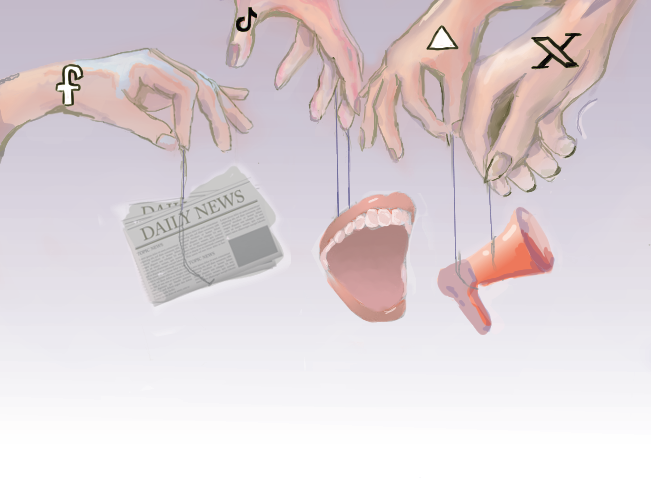
On July 1, a bill in Oregon was put into effect, allowing students to take off up to five mental health days every three months. This has sparked conversation among parents, students and educators alike, concerning not only the efficacy of policies like this one, but also whether or not these types of policies should exist at all, based on information provided by the scientific community.
The current scientific consensus seems to show that the general mental health of young people is currently, and has been, in a state of decline for quite some time. According to a report by the Journal of Abnormal Psychology, depression and psychological stress have consistently been on the rise for young people and teenagers, especially within an academic setting.
“Staying up late to get homework done, waking up early, yeah, it’s stressful,” junior Daniel Duff said. “I can usually get through it, but a lot of my friends have to take a day off here or there, and I don’t blame them.”
Students are faced with a lot of academic pressure, whether it be in the form of homework, clubs or generally keeping up with school functions. This, combined with the usual social stresses of teenage life, helps contribute to an educational context conducive to mental strain and stress.
The increase of academic pressure has had a notable impact on student life. A survey by the American Psychological Association found that 45% of all teens were stressed by school pressures.
“Sometimes it’s okay to just take a break,” junior Sam Deitsch said. “It’s okay to feel overworked, it’s okay to feel stressed out, just make sure your mental health is a priority.”
Something should be noted about the main student effort behind the Oregon mental health day policy. The main student organizers behind the fight had some inspiration: Marjory Stoneman Douglas High School students. The students who fought and advocated for the bill took inspiration from student activists from MSD and the various experiences of our fellow students on campus.
“We were inspired by Parkland in the sense that it showed us that young people can totally change the political conversation,” organizer for the bill, Hailey Hardcastle said in an Associated Press interview in July. “Just like those movements, this bill is something completely coming from the youth.”
Average teenage students across the country feel pressure every day, without taking into account the impacts of the trauma experienced by MSD in specific, which currently plays an immeasurable role in the mental state of members of the student body and faculty.
The usual pressures and stresses of teenage life can be potentially amplified, not only from individual trauma but also from the social context of a campus that has met tragedy and terror.
Mental health is an important aspect of any person’s life, especially young people. With increasing academic pressures, social stresses, and the prevalence of trauma that various student bodies have endured, it’s important that students keep their mental health in mind.









![National Honor Society Sponsor Lauren Saccomanno watches guest speaker Albert Price speak to NHS members. National Honor Society held their monthly meeting with Price on Monday, Nov. 4. "[Volunteering] varies on the years and the month, but we have started a couple new things; one of our officers Grace started a soccer program," Saccomanno said. "We have been able to continue older programs, too, like tutoring at Riverglades. NHS's goal is to have as many service projects as possible."](https://eagleeye.news/wp-content/uploads/2024/11/xNOeKNVwu7aErpVyJHrHogagZUUcLLosjtbIat94-1200x900.jpg)

![Ice Ice Baby. Skating to "Waltz" and "Romance" during her long program, figure skater Ava Zubik competes at the Cranberry Open in Massachusetts on Aug. 12, 2022. She scored a total of 86.90 on her short and free skate program, earning fifth place overall. "I try to make it [competing] as fun and enjoyable as I can because it's my senior year, and so I want to really enjoy competitive figure skating while it lasts," Zubik said.](https://eagleeye.news/wp-content/uploads/2024/11/skater1-799x1200.jpg)
